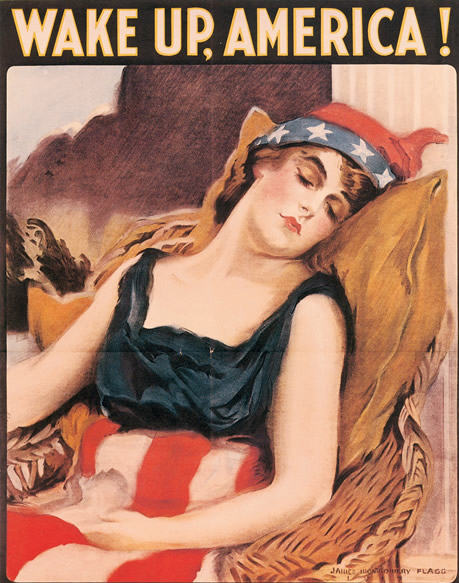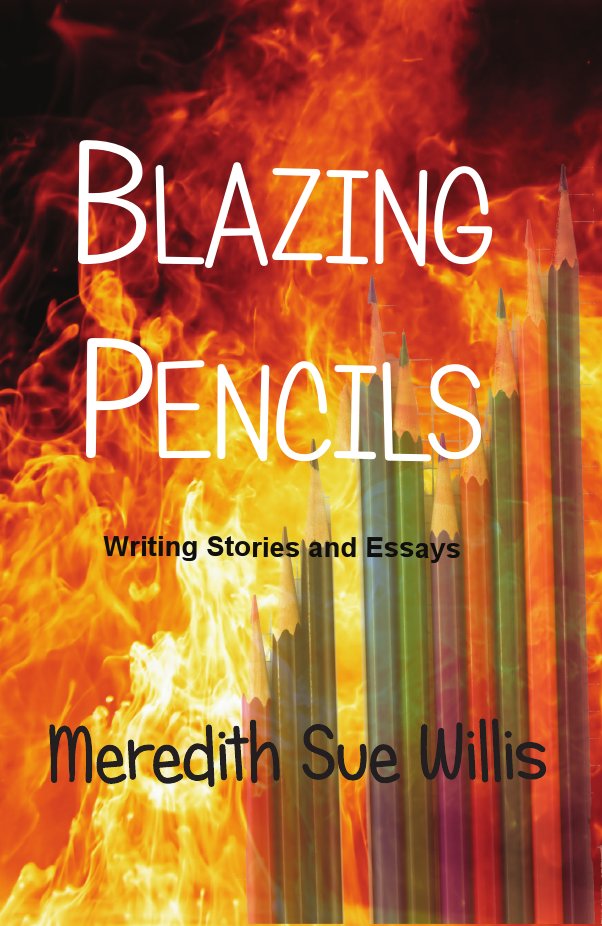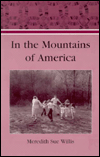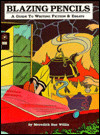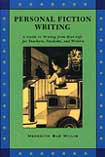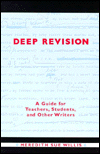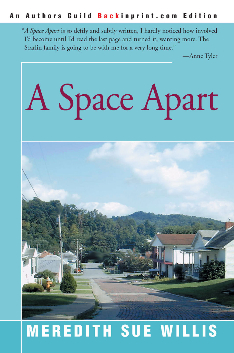Writing Exercises 121-140 are on this page.
Exercises 1- 20
Exercises 21- 40
Exercses 41 - 60
Exercises 61-80
Exercises 81-100
Exercises 101 - 120
Exercises 121 - 140
Exercises 141 - 160
Exercises 161 - 180
Exercises 181 - 200
Exercises 201 - 240
Exercises 241 - 260
Exercises 261 - 300
Exercises 301 - 330
For writing exercises for kids, click here.
For teens, begin here.
Exercise # 121
Sometimes it's fun to experiment with writing exercises usually reserved for elementary age children. Try this: Write an introduction to yourself that includes the following things that move roughly from outside, to inside, to deeper inside-- to explosion!
Write about what people see when they look at you from the outside
Write what people commonly know about you-- your job, some of your accomplishments or interests, who you live with, where you live, etc.
Write something that very few people know about you: wishes, dreams, a secret.
Finally, write a lie: how sometimes when you are home alone, you are transformed into.....
Exercise # 122
For Valentine's Day, write about a person selecting a gift for a loved one-- this could be yourself or a character, and the gift could be appropriate, wildly inappropriate, welcomed or rejected. Candy and flowers are old standard choices...
Exercise # 123
The man is crossing the railroad tracks on a damp summer day. He thinks to himself....
(For information on the photo, click here.)
Exercise # 123
It is a presidential election year. When I was growing up, I was taught never to discuss politics with friends-- a piece of advice I've rarely followed.... Write a dialogue in which two (or more) people discuss a political issue or candidate. Have the people disagree. Does the conversation become heated? Or does one person back-pedal or suppress her or his real beliefs? If you are writing fiction, try this with at least one character who you haven' t thought of as political at all. Is the character registered in a party? Does the character always vote? Ever vote?
Exercise # 124
Take this extremely short and dull bit of dialogue. Rewrite it, adding more. First, write it as a conversation between a teenage boy and an elderly woman. What you add may include longer speeches, more speeches, a setting, descriptions of the people, how they say things, their gestures, and anything else you want to add. Now write it again, as if spoken by two people in love, of any age. Then try it again as... ???
Here is the bare-bones dialogue:Hi.
Hi.
Where were you?
Nowhere.
Exercise # 125
Imagine the face of a stranger. This could be a person you see on the bus or someone in a restaurant or anywhere else. Start with a real face, but change anything you want. Visualize the face first, then where the person is, and the specific situation. Imagine that the person begins to speak to you, telling you how they came to be here. Now in your imagination, move closer to the person so you hear them speaking into your ear and telling you more personal things: what they are worried about, who they love. Finally, slip into the person's mind so that you are hearing thoughts and dreams and fears. Write as much of this as you can, not worrying about order or chronology. Just try to capture the voice.
Exercise # 126
You (if you are writing memoir) or a character (f you're writing fiction) leave home for an important event: a job interview, a funeral. Something entirely unexpected and perhaps even random happens: on the way to a funeral you stopped by a roving t.v. reporter and asked your opinion on the new smoking laws. Or there is a freak hailstorm-- at any rate, something for which the person is totally unprepared. Describe the incident, but also write about the effect on plans, feelings, ability to proceed with the set task, etc..
Exercise # 127
"I looked down the aisle of bookshelves and at the very end I saw..."
Exercise # 128
Guy de Maupassant above wrote old-fashioned plotted stories toward the end of the nineteenth century. First, read this translation of one of his well known stories, "The Necklace," online. Then write a very short story with a surpise or turn at the end.
Exercise # 129
Here is a mini plot: She tells him she never wants to see him again.
Write it in two ways: once, fully dramatized, with a setting and names and motivations-- a scene that could be the beginning of a story. Then, write it again in a single, summarizing sentence that captures some of what was dramatized in the first version.
A person--you, if you are writing memoir, an important character if you're writing fiction-- is involved in a physical struggle. Describe the action. This could be an actual fight, or struggle to escape, but it could also be a problem with putting on a pair of too-tight jeans. Focus on the action, but also include the person's frustration or fear, or whatever feeling is caused by the bodily movement.
For some examples of writing about physical action, click here.
Exercise # 130
This is an especially good exercise for writing for children, but can be used with creating any character.
Think of the face of a child (or other person) you have seen. This works best if it is not someone very close to you. Visualize the face first, then where the child or other person is: a specific place and a specific situation-- an eight year old boy with dark hair that falls into his eyes who is sitting on the stoop in front of his apartment building.. He has just moved to a new neighborhood.
Now imagine that the boy begins to tell you about his life: He speaks very quietly, close to your ear: his mother is a single mom, his little sister likes to run away, he’s worried about making new friends
Move closer to him in your imagination, so that you slip inside the boy’s head and hear his thoughts instead of his voice. He tells you how frightening the school bully is. He tells you a dream. He wants his own dog.Next write as much of this as you can, not worrying about order or chronology. Just write in the person's voice.
This is a way to get close to a character and perhaps to get some ideas for a story line
Exercise # 130
I've been working with my classes on physical action, something that movies do so well we often don't give much attention to it in prose writing, as if we assumed there would be a special director for the fight scenes in our fiction! Exercise #130 below was about physical action. Here is a slightly different one, using a passage from the thriller novel Gorky Park. (Alert: for the weak of stomach: sreading this passage may be a bad idea).
Write a description of something violent that you have really seen. This means it is probably not a murder (although maybe it is), but rather an animal attacking another, or a child pulling another's hair, or an adult losing control and breaking things.
Try to slow it down enough to bring out the most important parts of the action. You don't need to describe absolutely everything, but try to visualize it in a way that the most striking parts stand out.
While Iamskoy braced him, Unmann punched Arkady in the stomach, pulling his fist away with a curious flourish. Arkady looked down and saw a slim knife handle protruding from his stomach. He felt a sensation of ice inside himself and couldn’t breathe....
“And you surprised me,” Iamskoy went on....“Be honest with yourself...and admit I’m doing you a favor. Besides your father’s name, you’re losing nothing– no wife, no children, no political consciousness and no future....Believe me, this way is better. Why don’t you sit down?”
Iamskoy and Unmann stepped back for him to fall, and Arkady’s knees trembled and started to give way. He pulled out the knife. It seemed to come out forever, double-edged and sharp and red. German workmanship, Arkady thought. A hot rush poured down the inside of his uniform. Without warning he swung the knife into Unmann’s stomach at the same spot that Unmann had driven it into him. The force of his thrust carried them both into the pool.
They rose together from the water. Unmann tried to push away, but Arkady single-mindedly lodged the knife deeper and jerked it upward. Along the edge of the pool, Iamskoy ran back and forth for a clear shot....
(Martin Cruz Smith, Gorky Park (New York: Balantine, 1981), p. 309 - 311)
Exercise # 131
Writing from "Dance." Try a directed free write beginning with the word "dance." A directed free write is a timed writing (set a kitchen timer for tne minutes) in which you write steadily and without stopping anything that comes to mind but begin with thoughts and feelings about, in this case, dance.
More writing exercises related to dance:
1. Watch a dance live or on a DVD or tape. Describe it in two different ways:
– analyze the movements: “The dancer stamps her feet and angles her body in different directions. She forms her fingers into a pyramid and her arms sway...”
– write about the same dance using figurative language: “The dancer leaped heavily like a pouncing tiger...
– Write about dance from the inside: “When I dance, I fee at one with the music, as if the music were my body and my body the music...”
Exercise # 131
Try this:
Think of three characters, major or minor, in your fiction or memoir. Show each of them getting angry. What characteristic gestures do they use? What tones of voice? Emphasize their physical action and how it shows their anger, but feel free to include dialogue and what is going on inside them.
Exercise # 132
Set a kitchen timer for ten minutes. Think of some public figure living or dead about whom you feel strongly, and start writing about him or her. This could be a film star or a politician or anyone else. I had a student in a college composition class once, an American, who adored the British Royal family and wrote every assignment about some member of the British royal family– whether it was a descriptive essay or comparison and contrast!
Start writing about your person, keeping your pen or fingers on the move, repeating a word if you get stuck. If your thinking takes you off on a tangent, go with it. Don’t worry about cleverness, repetitiveness anything. The focus here is on the process of going inside yourself and seeing what comes out.
If you are working on a novel, you might have one of your characters think about this famous person–or have two characters talk about him or her–perhaps while they have something else really on their minds. That is, they talk about Britney Spears while they are avoiding talking about their own relationship...
Exercise # 133
Write a scene from your past when you expected one thing and got another. This sounds like it's going to be a story about disappointment, but doesn't have to be.
Exercise # 134
You are on vacation. You are at your beach house with the family, or in a hotel in a city you've always wanted to visit. Suddenly, there is a knock at the door, and into the exciting or relaxing situation of pleasure comes the person you least expected to see.
Exercise # 135
Describe using all five senses (or at least everything except taste) the most relaxing place you have every been or can imagine. Over-write this, giving lots of details-- sounds, smells, as much as you can. Write a second paragraph or passage in which you try to analyze why this is the one place that most relaxes you. Finally, go back and cut out everything but the very best parts.
Exercise # 136
Who left the broom?
Who left the door open?
What is happening in the dim interior?
What will happen outside in the light?
Exercise # 137
Think of a novel or story that once moved you profoundly. (And by the way,"move profoundly" could mean made you laugh as well as made you shudder). Perhaps it is even the work of fiction that inspired you to write. Very rapidly, write from memory the part or scene that has stuck with you all these years. Don't hesitate to make it your own. That is to say, change names, put yourself into the story, use your own materials and ideas. This work of fiction inspired you once; now let it inspire you again, and make it your own.
Exercise # 138
In the United States of America it is Presidential Frenzy Season! Write a speech in the voice of someone different from yourself that begins with "Wake Up America!" This might be someone from a different political party or even a different country. Try it again, in the voice of a character from a different time.
Exercise # 139
Sometimes getting started on new writing requires making a change in your routine to jar loose some material. Take a walk by yourself, no music, no pets, just a walk in a place where you won't run into anyone you know. Concentrate on trees or houses and gardens. Walk rapidly, look at the sky, feel the texture of the air. When a sentence comes to you ("They're flying flags on Summit Avenue today..." "We always used to argue over who got the front seat in the station wagon..." )-- whatever it is, memorize it, and maybe the next couple of sentences as well. When you're sure you've got them in memory, go home and write them down. Then set a timer and continue for fifteen minutes, wherever the memorized sentences take you.
Exercise # 140
A character in your fiction (or someone in real life including yourself ) is in a situation where they need to be forgiven-- or are asked to forgive someone else. Does the foregiveness happen? This could take the form of someone musing or remembering or a fully dramatized scene with dialogue.
For great photos of West Virginia mining towns, steel mills, and much more at Kevin Scanlon's site, click here.
Subscribe to Meredith Sue Willis's
Free Newsletter
for Readers and Writers:
Send email to MSW
New Book Deal!
Special Price on Meredith Sue Willis's new book of stories from myths and other stories: Re-Visions. Regular Price $14.95 plus S&H now $13.00 plus S&H.

Click on the Book or here.
Re-visions: Stories from Stories is a collection of spin-offs from myth, fiction, and the Bible. From a new look at Adam and Eve and why they left the Garden to a grown-up Topsy from Uncle Tom's Cabin to the confessions of SaintAugustine's concubine- each story offers a gloss on the original as well as insights into how we canlive today.
Photos found on the various pages of this web site may be used by anyone,
but please attribute the source when it is specified.
This work is licensed under a Creative Commons Attribution-NonCommercial-ShareAlike 3.0 Unported License.







